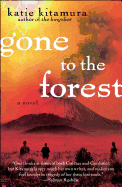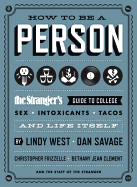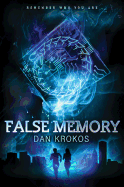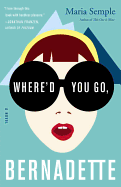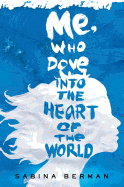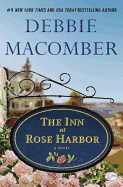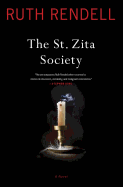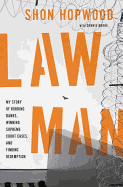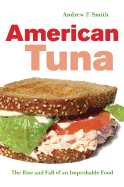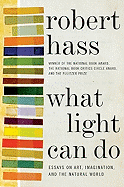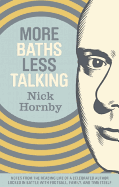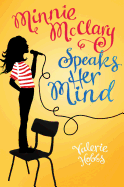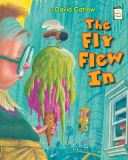Friday, August 17, 2012
Even if the excitement of the unknown is more thrilling than the comfort of the known, sometimes it is more wonderful the second time around. I'm talking about re-reading books, of course (what did you think?). For many, Jane Austen is the go-to re-read, for others it's To Kill a Mockingbird, or the Little House books, or even Proust. When I first wrote about re-reading books in March, I got a lot of responses. I was surprised--with so many books to read, who has time to re-read so extensively? Then I realized that I re-read when I need the calm of the familiar or down time from work--more often than I thought.
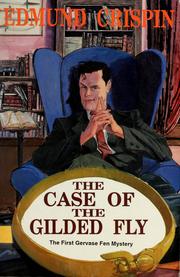 I just finished my treasure trove of Edmund Crispin mysteries. Between 1944 and 1953, he wrote nine novels featuring Gervase Fen, an eccentric and exasperating Oxford don. The wit and wordplay are exquisite. Other British mystery writers I go back to again and again are Patricia Wentworth, with her spinster sleuth Miss Silver, and Georgette Heyer--best known for her Regencies, but her mysteries are just as good. Also Dorothy Sayers, Josephine Tey, Mary Stewart--Stewart's descriptive prose and sense of place are superb, and her subtle romantic scenes sighingly evocative. I'm also a fan of Robert van Gulik's Judge Dee mysteries--sipping tea and losing myself in seventh-century China....
I just finished my treasure trove of Edmund Crispin mysteries. Between 1944 and 1953, he wrote nine novels featuring Gervase Fen, an eccentric and exasperating Oxford don. The wit and wordplay are exquisite. Other British mystery writers I go back to again and again are Patricia Wentworth, with her spinster sleuth Miss Silver, and Georgette Heyer--best known for her Regencies, but her mysteries are just as good. Also Dorothy Sayers, Josephine Tey, Mary Stewart--Stewart's descriptive prose and sense of place are superb, and her subtle romantic scenes sighingly evocative. I'm also a fan of Robert van Gulik's Judge Dee mysteries--sipping tea and losing myself in seventh-century China....
A study in the Journal of Consumer Research said re-reading is good for mental health. The researchers explained that the first time people read, they are focused on story; the second time, "the repeated experience reignites the emotions caused by the book... and allows people to savor those emotions at leisure. The 'second run' can offer profound emotional benefits." Here I thought it only offered profound pleasure. --Marilyn Dahl, book review editor, Shelf Awareness
Gone to the Forest
by Katie M. Kitamura
The implosion of established order on a remote plantation mirrors the collapse of colonial power in Gone to the Forest, the eerie and foreboding second novel by Katie Kitamura. Kitamura, who displayed a cool hand with a violent theme (ultimate fighting) in the critically acclaimed The Longshot, again seeks the darker corners of the human soul, using the metaphor of colonial hierarchy to show the thin veneer between society and chaos.
Set in a purposely vague country that evokes such colonial experiences as Latin America, Sri Lanka and especially Africa, Gone to the Forest is the story of meek Tom and his cruel, widowed father. Together, they run a struggling outpost farm that relies on the father's gritty determination and the exploited labor of the locals. When Carine, a rootless young woman, comes to the farm, Tom's father mates her to Tom almost like livestock. But Tom's father and Carine have secret motives and, as the rumblings of revolution around them come to a roar, the three must weigh their loyalties to a way of life and each other against outright self-preservation.
With spare and deliberate prose, Kitamura brings this fable of power's illusions to a stunning, breathtaking conclusion. Along the way--most notably with the straightforward, yet chilling depiction of Carine's victimization by local farmers--she shows why she has earned comparison to great writers like Nadine Gordimer and Herta Müller. Gone to the Forest is a beautiful, indelible depiction of the horror of primal impulses. --Cherie Ann Parker, freelance journalist and book critic
Discover: A chilling fable of control and chaos set amid a collapsing colonial society.
Where'd You Go, Bernadette
by Maria Semple
If she aces her report card, precocious Bee Branch, the 15-year-old narrator of Maria Semple's Where'd You Go, Bernadette, is promised a trip by her over-the-top, over-achieving parents. But when Bee--an only child, born with heart problems--makes perfect grades and picks Antarctica as the family destination, all hell breaks loose.
Bee's mother, Bernadette Fox, a once-renowned architect, has been in an anxious, emotional funk for years that has forced her to outsource the minutiae of her life (at a rate of 75 cents per hour) to a woman in India. It doesn't help matters that Bee's father, Elgin Branch, a workaholic bigwig at Microsoft, uprooted the family from Los Angeles to Seattle, a city Bernadette feels has "zero architectural integrity," is filled with "the slowest drivers you ever saw" and has become overrun with tourists and overly compassionate do-gooders. Add a meddling, Seattle-born secretary at Microsoft and a neighbor obsessed with destroying Bernadette because she views her as rude and antisocial, and what emerges is an acerbic, dark, satirical comedy. The day before the family's departure, Bernadette, who is dreading the South Pole vacation, disappears. Amid the search, surprising discoveries are made and bombshells are dropped.
Semple (This One Is Mine) stitches together this funny, inventive story via e-mails, letters, FBI reports, magazine articles and interspersed narrative passages told in Bee's voice. This fresh, original dramatic structure brings levity to harrowing and complex domestic issues. --Kathleen Gerard, blogger at Reading Between the Lines
Discover: A dark comedy about a super-rich, dysfunctional Seattle family in crisis, from a former writer/producer for Arrested Development and Mad About You.
ME, Who Dove into the Heart of the World
by Sabina Berman, transl. by Lisa Dillman
Karen Nieto is a remarkable character, and Mexican playwright/poet Sabina Berman's rendering of her unusual voice and personality in ME, Who Dove into the Heart of the World is equally remarkable. This debut novel wouldn't work well as anything other than a first-person narrative; a large part of its success depends on making the reader engage with the world as Karen does, and Karen's ways of engagement are very particular, beginning with the fact that animals and nature make far more sense to her than people do.
A college psychology test classifies Karen as a "highly functioning autistic," with scores at the level of a young child--except in certain areas, where she performs at the genius level. With support from her aunt and an unusual business partnership, Karen is given unexpected opportunities to develop that genius. It might seem paradoxical, given her affinity with animals, that the work that saves her family's fishery business and ultimately brings her renown and riches involves developing more humane ways to cultivate tuna for the high-end consumer market, but she doesn't see it that way. However, it does attract the unwelcome attention of a militant animal-rights group.
Through Karen, Berman explores some of the issues of modern agriculture in a way that never feels heavy-handed; more importantly, she makes a potentially off-putting character sympathetic. ME, Who Dove into the Heart of the World is a beautifully written, emotionally affecting debut featuring a protagonist whose "different abilities" include surprising and charming the reader. --Florinda Pendley Vasquez, blogger at The 3 R's Blog: Reading, 'Riting, and Randomness
Discover: A woman whose "different abilities" bring her unexpected opportunities to develop her genius and save her family's livelihood.
The Inn at Rose Harbor
by Debbie Macomber
The Inn at Rose Harbor begins a new series that returns to Cedar Cove, a community based on Debbie Macomber's own hometown in Washington State (and the setting for an earlier sequence of novels and stories). Jo Marie Rose, a recent widow in her late 30s whose husband died in the war in Afghanistan, purchases a bed-and-breakfast in the quaint, seaside town in the hope it will give her a fresh start at life and mend her broken heart.
The first to board at the inn is Joshua Weaver, a young man who has returned to town to collect a few of his late mother's treasured mementos from his stepfather, who is facing serious illness. The two men share a tumultuous history and many years of hard feelings. Will they--can they--reconcile?
Abby Kincaid is also staying at the inn, having returned to Cedar Grove (reluctantly) to attend her brother's wedding. Abby has not been back to town in 10 years, as she is still riddled with guilt, believing she caused the vehicular death of her best friend in high school. Will her former hometown sit in judgment or welcome her warmly?
Underlying spiritual forces and the pull and tug of burgeoning romance underscore this gentle narrative. Macomber writes wholesome stories of ordinary people who seek out ways to make peace with life after hardships and loss. With The Inn at Rose Harbor, themes of hope, forgiveness and revival once again rise to the top. -- Kathleen Gerard, blogger at Reading Between the Lines
Discover: A Washington State bed-and-breakfast is the setting for Debbie Macomber's new series, in which three characters come to grips with loss, love and death.
Mystery & Thriller
The St. Zita Society
by Ruth Rendell
On a quiet street in London, a chauffeur is sleeping with his master's daughter--and his master's wife. Down the street, in exchange for pocket cash, another family's au pair helps sneak into the house her mistress's lover, a man who happens to be a famous soap opera actor and grand-nephew to the stuck-up housekeeper of a princess of dubious origin. The local gardener believes that his god is speaking to him through his cell phone, setting him on a mission to destroy the evil spirits he sees around the city. This unlikely cast of characters bands together in a haphazard society that they call the St. Zita Society, named for the patron saint of domestic servants.
The St. Zita Society, a standalone novel from the delightfully imaginative mind of Ruth Rendell, is a gripping portrayal of the London world of servants and their masters, all marching toward an inevitable--and violent--conclusion. Rendell approaches the inner lives of her characters with a detailed, probing eye, bringing them to life with her sharp and clever writing. Her shockingly normal characters--a housewife with an obsession for exercise and tight jeans; an absent husband who throws himself into his work; a lazy au pair with a knack for doing as little as possible--only make the suspense all the more striking. Rendell has written more than 50 novels, and the The St. Zita Society, a brilliantly crafted novel of psychological suspense, further enforces her rightful place as the queen of British mystery writing. --Kerry McHugh, blogger at Entomology of a Bookworm
Discover: A master of suspense turns her imagination to a gripping tale of the secret lives of domestic servants and their masters in modern London.
Nonfiction
How to Be a Person: The Stranger's Guide to College, Sex, Intoxicants, Tacos, and Life Itself
by Lindy West, Dan Savage, Christopher Frizzelle, Bethany Jean Clement and the staff of the Stranger
Becoming an adult is hard work. While some young adults may have experience paying bills or living independently, many of us spend our early lives under our family's sheltering wing, only to emerge into the adult world confused and, well, completely clueless. If you or a loved one feel overwhelmed by the task of being a grown-up, don't despair! The staff of Seattle alternative newspaper the Stranger has assembled a hilarious guide through this difficult transition. The first piece of advice in How to Be a Person? "Almost nothing is as big a deal as it seems. Stop crying."
The authors illuminate touchy subjects such as which college majors to avoid like the plague, how to get along with people who are different from you and how to drink alcohol without getting yourself killed. The guide also includes Dan Savage's "Savage Love: The College Edition," a selection of topics from his popular sex and love advice column especially relevant to younger readers.
Don't be fooled by the bitingly funny humor. This guide teaches simple tasks like how to wash socks, make tacos and not commit a heinous mistake on an English paper as well as how to face complicated situations such as deciding whether to experiment with illegal drugs, choosing an area of the United States to call home or coming out of the closet. Reassuring, practical and thorough, How to Be a Person is perfect for any recent high school or college graduate. --Jaclyn Fulwood, blogger, Infinite Reads
Discover: An outrageous, hilarious, and utterly true guide to adulthood for the beginner grown-up, from the crew at Seattle alternative newspaper the Stranger.
Biography & Memoir
Law Man: My Story of Robbing Banks, Winning Supreme Court Cases, and Finding Redemption
by Shon Hopwood and Dennis Burke
Shon Hopwood came from a loving, church-going Nebraska family. He wasn't into drugs, but he really wasn't into agriculture--the farmer's son robbed five banks by the time he was 23. But Shon's tale, as told in Law Man, is as miraculous as it is shocking, as he managed to find both his life purpose and redemption in a prison system that so often fails its inmates.
During a decade behind bars, Hopwood learned how to survive and gain respect in a harrowing hell. He recounts acts of brutal violence, race wars and the anguish of missing his family and the love of his life. He also includes some fascinating information about the ins and outs (mostly ins) of jail. It's like the shark tank at the aquarium--riveting as long as you're not in it.
When Hopwood begins acting a jailhouse lawyer to his fellow inmates, he finds his passion. He becomes so adept at thinking critically about the appeals process that he writes a brief that makes it all the way to the Supreme Court, knocking 10 years off the sentence of a young man. Granted, Hopwood gets paid in sandwiches and stamps while in the joint, as all of his "clients" are fellow criminals. But when his decade of incarceration is over, Hopwood has more to show for it than just a prison tattoo. If there's such a thing as a feel-good prison memoir, Law Man is it. --Natalie Papailiou, author of blog MILF: Mother I'd Like to Friend
Discover: A prison memoir that will restore your faith in people's ability to change.
History
American Tuna: The Rise and Fall of an Improbable Food
by Andrew F. Smith
Tuna, once valued more as a source of oil than of sustenance, did not become standard cuisine until wartime rationing raised its profile in the American diet. Andrew F. Smith (Potato: A Global History) chronicles tuna's transformation from immigrant gruel to the most commonly consumed fish in the country in the entertaining American Tuna.
Smith pinpoints the rise of interest in tuna to the enthusiasm of sport fishermen off the Pacific coast, but it was not until 1910 that canned albacore piqued public interest--and only when its flavor and smell were adulterated to resemble white-fleshed chicken (thus "Chicken of the Sea"). Tuna's popularity rose during the two world wars, when rationing created an international demand for alternative protein sources. Overconsumption and overfishing drove industry fishermen to pillage tuna-rich stores off the coast of South America, forcing the U.S. government to create protective economic policies and foreign alliances that turned the tuna market into a parallel of Big Oil, with Americans dependent on foreign suppliers to meet their increasing demand.
Smith's thoroughly researched history forces us to consider the larger picture of how consumption affects the renewability of food sources and how economic power can damage more than sustain. If American Tuna stimulates a broader discussion on the problems of food production as a whole, Smith will have achieved a major victory. --Nancy Powell, freelance writer
Discover: A food historian reveals how the once-scorned tuna became the most commonly consumed fish in the United States.
Essays & Criticism
What Light Can Do: Essays on Art, Imagination, and the Natural World
by Robert Hass
Robert Hass has won all the awards the United States has to offer for poetry, including (from 1995 to 1997) the title of poet laureate. In What Light Can Do, a collection of 31 essays, Hass offers up a healthy serving of what he calls "acts of attention," casting his light and instructs on a stunning range of subjects, from Allen Ginsberg's "Howl" to Jack London, the Epistles of John and landscape photos by Robert Adams that provide Hass with his title.
Hass loves his subjects with a youthful excitement and joy. He writes about experiencing a Wallace Stevens poem when he was in college: "I was stunned by the poem. And I am still stunned by the poem." He reflects upon the way poems happen in a life "when they are lived with rather than systematically studied." Discussing Emily Dickinson, he writes about a group of poems she wrote between 1861 and 1862, "two hundred of which anybody would cut their wrists to write." And he describes an amazing moment when he heard Ezra Pound's daughter read her father's poems in the same cadence Pound heard Yeats read his in--"that rhythm of hearing the movement of language was still alive and was being transmitted."
These essays are humane, instructive, illuminating. And Hass's style is so readable, so rich in words and ideas, that it's like a full-bodied wine you want to savor, roll around in your mouth, before swallowing whole. --Tom Lavoie, former publisher
Discover: Fascinating inquiries into a range of subjects from one of America's finest poets--served up in beautiful, thoughtful prose.
More Baths Less Talking: Notes from the Reading Life of a Celebrated Author Locked in Battle with Football, Family, and Time
by Nick Hornby
Nick Hornby is the guy who writes the monthly "Stuff I've Been Reading" column for the Believer, the magazine piece of the McSweeney's publishing empire (he's also the novelist whose bestselling High Fidelity made "top five" pop culture lists a staple of barroom banter). In More Baths Less Talking, a collection of his last two years of Believer columns, he reviews--or rather riffs on--everything from old-school Twain ("That Tom Sawyer is a pill, isn't he?") and Wordsworth ("There is more in these poems about the natural world than is strictly necessary") to the contemporary novel American Rust by Phillip Meyer ("Unlike most first novelists, Meyer knows that we're all going to die, and that before we do so we are going to mess our lives up somehow").
Although Hornby had a traditional background that led him to discover "that I didn't want to read or listen to anything that anybody in any position of educational authority told me to," he finally "discovered that some old s*** isn't so bad." And so his reading selections range broadly across all eras and genres, and this collection might best be described with the same words he uses to praise Nicholson Baker's The Anthologist and its protagonist: "It's a wonderful novel, I think, unusual, generous, educational, funny. The eponymous narrator, Paul Chowder... might be an awful mess, but you trust him on all matters related to poetry." It is equally easy to trust Hornby on all things books. --Bruce Jacobs, founding partner, Watermark Books & Cafe, Wichita, Kan.
Discover: The eclectic book selections and amusing "reviews" of Believer columnist and bestselling novelist Nick Hornby.
Children's & Young Adult
False Memory
by Dan Krokos
In his engrossing debut novel set in a futuristic world, Dan Krokos zeroes in on four teens trying to determine their own futures while they remain unsure of their past.
When 17-year-old Miranda North wakes up in a mall, she knows only two things about herself: her age and her name. She asks a mall security guard for help, and he thinks she's messing with him. When he places a hand on her shoulder, her martial arts instincts kick in. Miranda flips the cop onto his back, and the mall's patrons begin a fatal stampede.
Krokos successfully places us in Miranda's shoes. As readers, we know only what Miranda tells us, and she knows only what other people tell her. Peter, the last person left in the mall after the mass exodus, explains to Miranda that when she felt threatened, she "released a burst of psychic energy" that affected the mall patrons, energy that she could control before her memory loss. Peter and Miranda are part of a foursome who've grown up together, along with Noah and Olive. They learn of a renegade named Rhys, who could hold the key to whoever is controlling their minds and why.
Through Miranda, Krokos emphasizes one of life's great truths: that we cannot change the past; all we have are the choices we make as we move forward. He brings this gripping launch to his trilogy to a solid conclusion, but also raises a cliffhanger question that will ensure readers' return. --Jennifer M. Brown, children's editor, Shelf Awareness
Discover: A thrilling kickoff to a futuristic trilogy in which four teens trained to be peacekeepers fear they're actually weapons.
Minnie McClary Speaks Her Mind
by Valerie Hobbs
If you're reading this, likely you once had a teacher who changed your life. Minnie McClary Speaks Her Mind celebrates one of those teachers, as well as the girl who changes the most as a result.
Minnie is a shy girl who's just moved to Mojave. All her family members have changed in the wake of her father being laid off--especially her uncle, recently returned from the Iraq war. When new teacher Miss Marks takes over their sixth-grade classroom, she immediately attracts and scares Minnie with the way she teaches and the questions she asks. As tensions mount from a group of parents working to oust Miss Marks, as well as escalating bullying and racism, Minnie finds herself torn between her need to act in the face of injustice and her fear of being embarrassed. She realizes she must figure out the answers to some of Miss Marks's questions and say them out loud.
Hobbs's (Defiance) clear writing is ideally suited for middle-grade readers of varied reading levels. She illuminates adult matters without being patronizing and handles middle-school issues with compassion. Though the ending may feel a little pat, Hobbs skillfully maintains several different story lines and allows readers to experience the full range of pressures that Minnie is feeling. Ultimately, the moment in the book when the title comes true could well inspire the shy kid in every reader--and maybe plant the seeds for a few future life-changing teachers, too. --Stephanie Anderson, readers' advisor at Darien Library and blogger
Discover: A thoughtful, realistic novel of a teacher who sets in motion a student's journey to try to do what's right.
The Fly Flew In
by David Catrow
David Catrow's trademark brand of over-the-top humor makes the perfect match for a bare-bones tale aimed at beginning readers about a fly that interrupts a performance.
The paper-over-board book begins on the title page, as the fly nears a doorman with an overlong nose and a pair of spectacles perched upon them. It's an ideal landing spot: "The fly flew on," says the first line. The uniformed fellow responds with a healthy sneeze: his hat flies up, his feet leave the ground, and "The fly flew off." Into the auditorium it goes. A man loses his toupee and hearing aid, a woman her tiara, and a child his lollipop ("The fly flew in, out, and on"). Catrow repeats the key words and introduces just enough new words to keep things interesting, as when the fly disrupts the orchestra and the pest becomes a target. "Get that fly! Bang!" says a drummer, crashing a cymbal (and inadvertently hitting the violinist). "Get that fly! Boom!" cries the drummer (rapping the hand of the actress).
The fly not so much upstages as upends the performance. Until at last "The fly flew out. Bye, fly!" The unspoken smaller dramas will be just as entertaining to youngsters as the overarching plot of the fly's antics (e.g., the conductor, reading and chowing down pizza does not see the child's lollipop headed straight for his long white hair). Catrow proves how much may be done with a few well-placed words and a comical scenario. Encore! --Jennifer M. Brown, children's editor, Shelf Awareness
Discover: A comical tale with minimal words about a fly that upends a performance.


